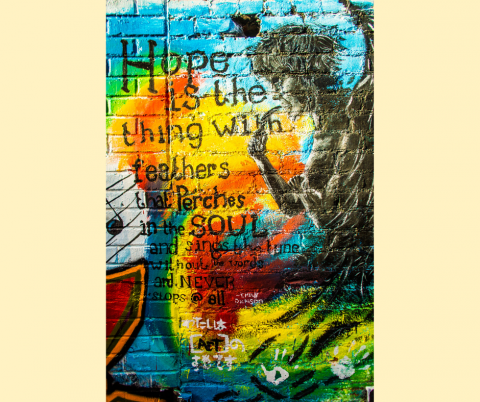What Is Hope? Bridging the Gap Between Lived Experience and Research (2024-2025)
Background
From ancient philosophical traditions to modern empirical research, hope has been recognized as a crucial factor in promoting resilience, motivation and positive outcomes in various domains of life. As the world faces unprecedented challenges, the study of hope has taken on new urgency, particularly in its role as a preventative factor in mental health, preventing the need for individuals to seek help in the first place.
Hope is also a central concept in various religious traditions. Understanding hope as a religious competency is also an underserved area of study that can shed light on the ways in which hope is intertwined with faith, spirituality and existential questions. By studying hope from these perspectives, we can develop a more comprehensive understanding of hope and its role in promoting flourishing and preventing mental health problems. The study of hope is not only scientifically valuable, but also deeply inspiring, as it has the potential to contribute to a more hopeful and flourishing society.
The scientific study of hope is surprisingly limited given how frequently hope is presented as central to flourishing. Most conceptualizations of hope range from too narrow – the dominant account of hope in psychology is restricted to goal-pursuit – to too broad – a multidimensional approach to hope confounded with the presence of spirituality and trusting relationships, among others. It is crucial to renew our understanding of hope through a deeper engagement with its lived experiences and existential roots.
Project Description
This project team will engage with the lived experience of hope as reported by practitioners and community members, including people of faith. The project will enable the collection of “stories of hope” from people of varied religious and cultural backgrounds with the aim of creating a data repository containing rich qualitative data on experiences of hope and contributing to scientific knowledge on hope.
Team members will expand the understanding of what hope is through semi-structured interviews to gather 30-60 personal stories of hope. A diverse set of participants will be recruited to represent different religious, cultural and socio-economic statuses.
The team will organize into three subgroups focused on clergy, minority participants (conceived broadly in terms of race, socio-economic status and religious affiliation) and cross-cultural perspectives. Semi-structured interviews will be analyzed within and across the subgroups for meaningful themes that can inform a scientific understanding of hope.
Anticipated Outputs
Online repository; project website; academic publication; pamphlet to inform practitioners about the topic of hope; scientific meeting for foundational work on hope; public workshop for professionals and religious leaders
Student Opportunities
Ideally, this project team will include 3 graduate students and 12 undergraduate students with interests and background in the social sciences.
All team members will gain experience in literature review, interview design and execution, participant recruitment, data collection, data analysis and interpretation, and academic writing. Students will develop skills in project design from the ground up and learn social science research methods, analytical skills and critical evaluation of existing theories of hope. They will also be exposed to the science of emotions, well-being, sociology and psychology of religion, and the social determinants of health.
In Fall 2024, the full team will meet on Mondays from 10:05-11:20 a.m. and subteams will meet on Wednesdays from 10:05-11:20 a.m.
In an optional summer component, several students will travel to a field site to conduct interviews and exchange ideas around the topic of hope with local participants.
Timing
Fall 2024 – Summer 2025
- Fall 2024: Conduct literature review; train for interviews; develop interview questions; recruit participants; start data collection
- Spring 2025: Continue to recruit participants; conduct interviews; continue data collection; train in qualitative analyses; analyze data; interpret findings; draft report
- Summer 2025 (optional): Travel to field site; conduct interviews
Crediting
Academic credit available for fall and spring semesters; summer funding available
Image: Hope, by Thomas Hawk, licensed under CC BY-NC 2.0

Team Leaders
- Erin Johnston, Arts & Sciences-Sociology
- Patty Van Cappellen, Social Science Research Institute
/yfaculty/staff Team Members
-
Rae Jean Proeschold-Bell, Duke Global Health Institute
-
Cheryl Tan, Social Science Research Institute
